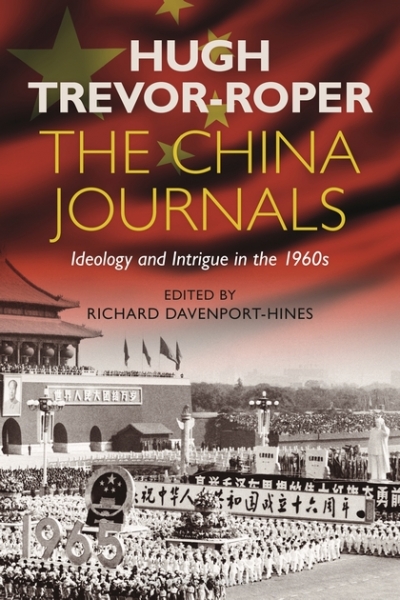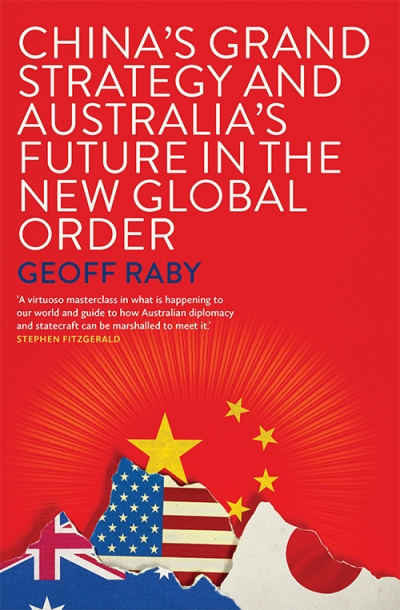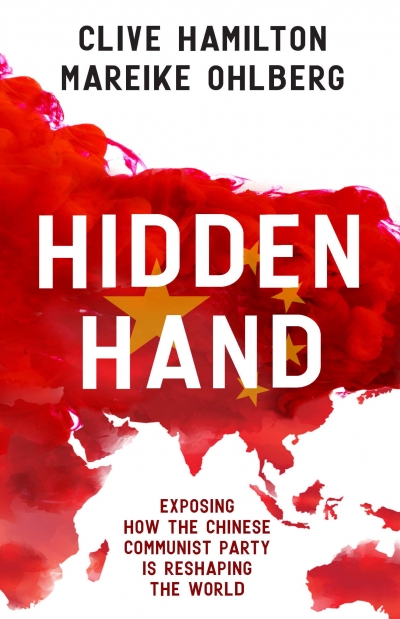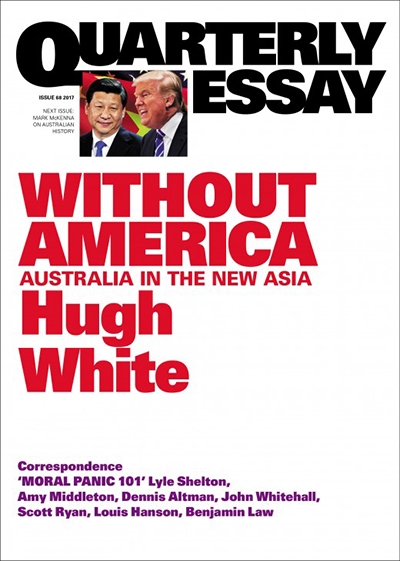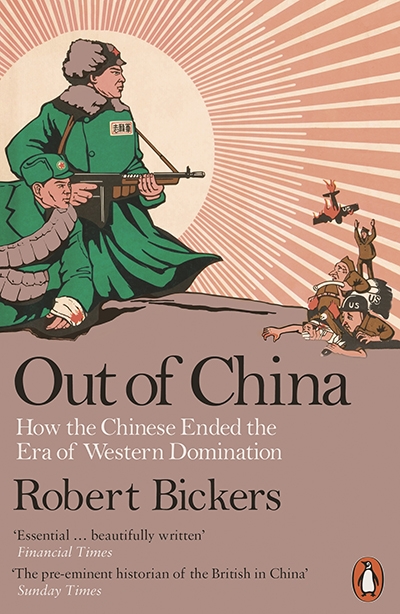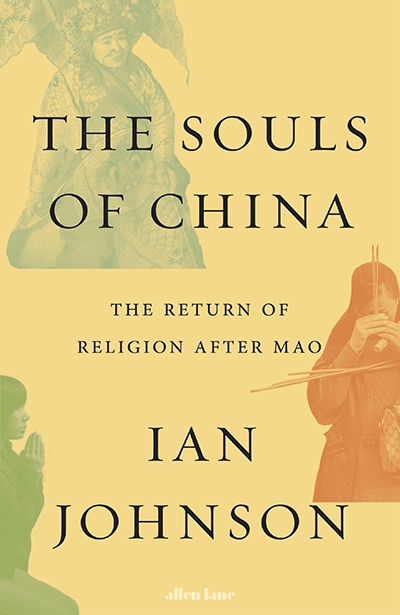China
It has become a rite of passage for foreign correspondents returning home from a stint in China to pen a memoir recounting their experiences. All too often, the story begins with the said reporter crossing into mainland China at Lo Wu, having just spent time enjoying the bright lights of Hong Kong. Clearly, the Lo Wu railway station holds a certain allure for wandering Australian journalists.
... (read more)The China Journals: Ideology and intrigue in the 1960s by Hugh Trevor-Roper, edited by Richard Davenport-Hines
by Nicholas Jose •
China’s Grand Strategy and Australia’s Future in the New Global Order by Geoff Raby
by Hugh White •
Hidden Hand: Exposing how the Chinese Communist Party is reshaping the world by Clive Hamilton and Mareike Ohlberg
by Ben Bland •
Silent Invasion: China’s Influence in Australia by Clive Hamilton
by David Brophy •
Without America: Australia in the New Asia (Quarterly Essay 68) by Hugh White
by David Brophy •
Out of China: How the Chinese ended the era of Western domination by Robert Bickers
by Andres Rodriguez •
A New Literary History of Modern China edited by David Der-Wei Wang
by Nicholas Jose •
The Souls of China: The return of religion after Mao by Ian Johnson
by David Brophy •

